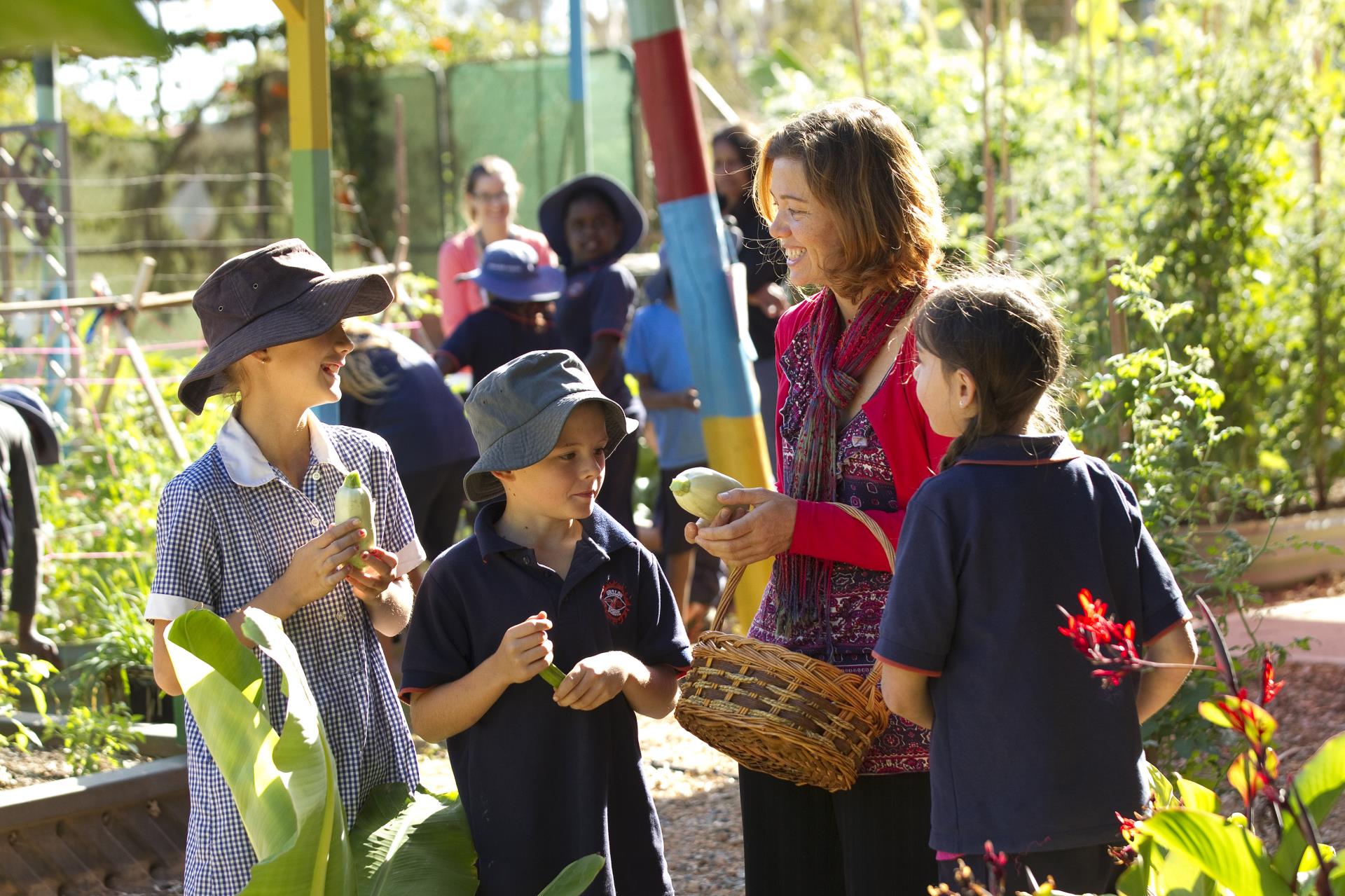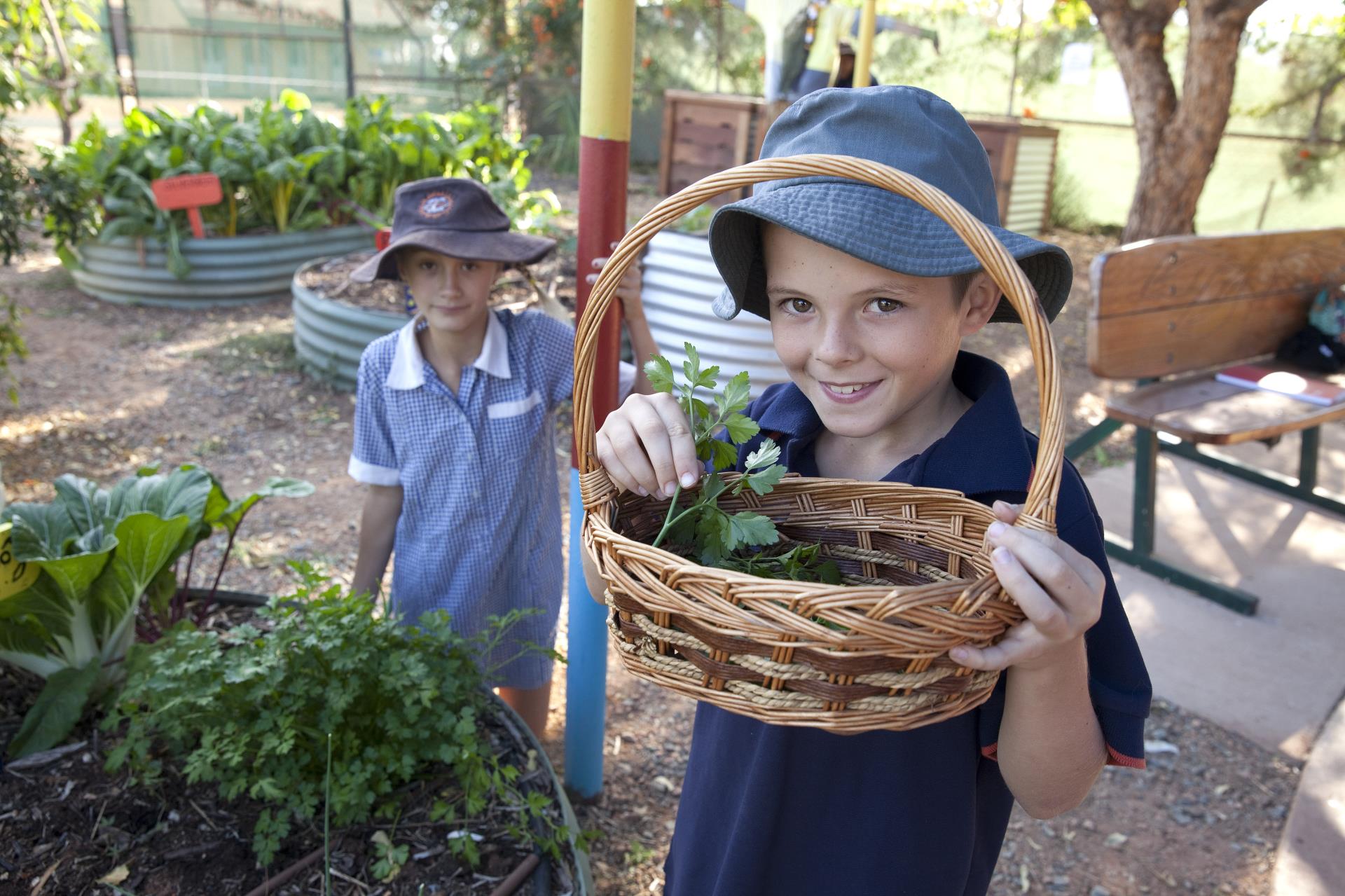Published on Friday, 28 November 2014 at 12:00:00 AM
A new community partnership between the Shire of Ashburton and the Chevron-operated Wheatstone Project will support the continued success of an important in-school program, the Onslow Kids Kitchen Garden (OKKG).
The garden at Onslow School was officially opened on 23 May 2007 and was funded by Pilbara Health Network until June 2013.
The vegetable garden is thriving this summer, and provides a hands-on, practical outdoor classroom where students learn to grow and cook their own food.
Shire of Ashburton OKKG Coordinator Denise Wright runs weekly gardening and cooking classes with primary school students and believes it’s a great way to make learning fun.
“The program enhances learning experiences at the school - whether through a literacy activity, reading or writing a recipe, learning food preparation techniques or a chance to connect with and learn about nature in the beautiful venue of the veggie garden,” said Denise.
Chevron Australia Community Engagement Advisor Sam Rigg said the continuation of the OKKG would provide local students with benefits in the areas of health and wellbeing and provide practical learning outcomes.
“The partnership will support each of the enthusiastic students, teachers, and local volunteers who spend their time and efforts maintaining the vibrant school garden,” Sam said.
“Chevron is proud to be involved in a program that delivers such a diverse range of positive outcomes, and builds on our ongoing volunteering efforts and contribution to the nearby Onslow Community Garden.”
The Onslow Kids Kitchen Garden is also supported by the Stephanie Alexander Kitchen Garden Foundation. The Foundation provides skills, support and inspiration to schools to help them implement and deliver the Kitchen Garden Program.
Inspired by her childhood memories of a kitchen garden and a family culture that focused on the ritual of sharing a meal, Stephanie developed the philosophy of the Kitchen Garden Program to ensure children were enthusiastic about the food production process from start to finish.
Stephanie’s model focuses on the pleasurable aspects of preparing meals, suggesting that positive food habits can only be created when they are fun.
As the children learn to grow, prepare and cook a variety of food parents can recruit more help in the kitchen, and perhaps even have a night off while the kids cook the evening meal!


Back to All News